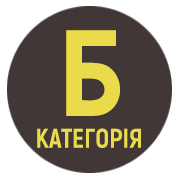THE INFLUENCE OF THE ETYMOLOGY CONCEPT TRAVEL (JOURNEY) ON ITS CURRENT MEANING STRUCTURE IN ENGLISH LANGUAGE
DOI:
https://doi.org/10.32782/folium/2023.3.11Keywords:
TRAVEL (JOURNEY) concept, English linguistic culture, semantic structure of the concept, subconcept, etymology of concept nominationsAbstract
The TRAVEL (JOURNEY) concept reflects the mentality of the English ethnic group, and its nativeness was formed in parallel with the emergence and borrowing of linguistic units in accordance with the needs of speakers of English linguistic culture. The semantic structure of the concept TRAVEL was formed earlier than the semantic structure of its analogue JOURNEY. The content structure of the TRAVEL (JOURNEY) concept, depicted in the explanatory dictionaries of the modern English language, is considered, and it is shown that the content structure of the TRAVEL (Ukrainian: ПОДОРОЖ) concept (JOURNEY) (Ukrainian: ПОДОРОЖ) contains the subconcepts ROAD (Ukrainian: ДОРОГА), WAY (Ukrainian: ДОРОГА). Etymological analysis of dictionary articles reflecting the actualized concept and its sub-concepts allows tracing the process of development and formation of content components of the analyzed concept and clarifying its structure. We conclude that: (1) the formation of the content of the TRAVEL (JOURNEY) concept (Ukrainian: ПОДОРОЖ) was influenced by the formation of the English language as the language of the British ethnic group; (2) the lexemes travel (Ukrainian trip), journey (Ukrainian trip), tour (Ukrainian short journey, trip) and trip (Ukrainian trip) borrowed from the Old French language are adapted in discursive practice, (3) the structure of the lexical meaning of words presenters of the considered concept and its sub-concepts were replenished with new lexical-semantic variants, creating its own structure of the semantic field of the considered concept; (4) the words road (Ukrainian: дорога) and way (Ukrainian: шлях) belong to the original English lexemes, which they used to produce content related to the traditional understanding of the process of traveling in space and time for English linguistic culture.
References
Запорожченко Ю. Концепт подорожі в сучасному постмодерністському тексті (Ю. Андрухович, А. Стасюк). Слово і час. 2009. № 7. С. 11–18.
Каратєєва Г.М. Концепт подорож у французькому постмодерністському романі: шляхи інтерпретації. Науковий часопис НПУ імені М.П. Драгоманова. Серія 9 «Сучасні тенденції розвитку мов». 2007. Вип. 2. С. 63–67.
Коваленко В. Типи когнітивних структур, які лежать в основі концепту подорож. Foreign language in professional training of specialists: issues and strategies. 2020. С. 32–33.
Кожуховська Ю.В. Передумови формування концепту подорож у новогрецькій поезії 20 сторіччя. Мовні і концептуальні картини світу. 2014. Вип. 50(1). С. 385–390.
Колонюк С., Космеда Т. Концепт подорож (мандрівка) як предмет лінгвістичних досліджень початку XXI ст. Collection of scientific papers «SCIENTIA». 2022. С. 86–87.
Ляховин О.Б. Концептосфера подорож в українському, російському та німецькому паремійному фонді. Лінгвістичні дослідження. 2011. № 32. С. 75–79.
Clifford J. Routes: Travel and translation in the late twentieth century. Harvard University Press. 1997. 408 p.
Clifford J. Traveling cultures. In Cultural studies. Online Etymology Dictionary. Routledge. 2013. Pp. 96–116.
Lévi-Strauss C. The view from afar. University of Chicago Press. 1992. 311 p.
Longman Dictionary of Contemporary English Online. (E-resource). Сайт. URL: https://ldoceonline.com.
Online Etymology Dictionary. (E-resource). Сайт. URL: https://etymonline.com.
Pratt M.L. Imperial eyes: Travel writing and transculturation. Routledge. 2007. 296 p.
Tylor E.B. Primitive culture: Researches into the development of mythology, philosophy, religion, language, art, and custom. Vol. 1. 1924.










